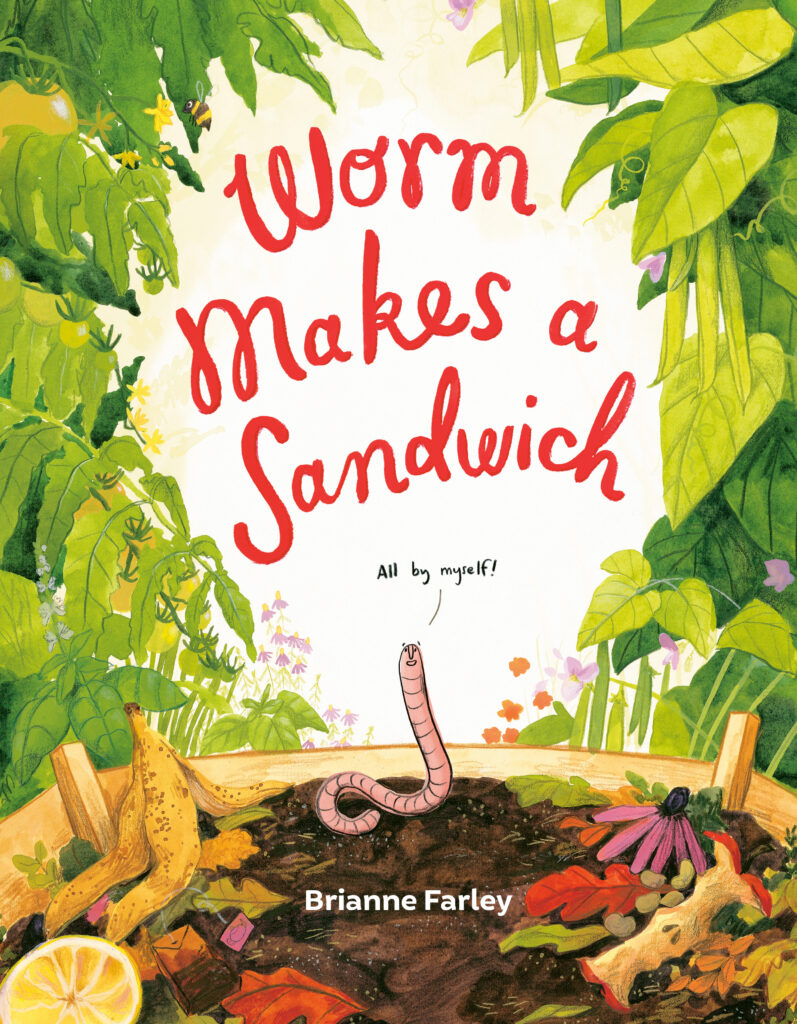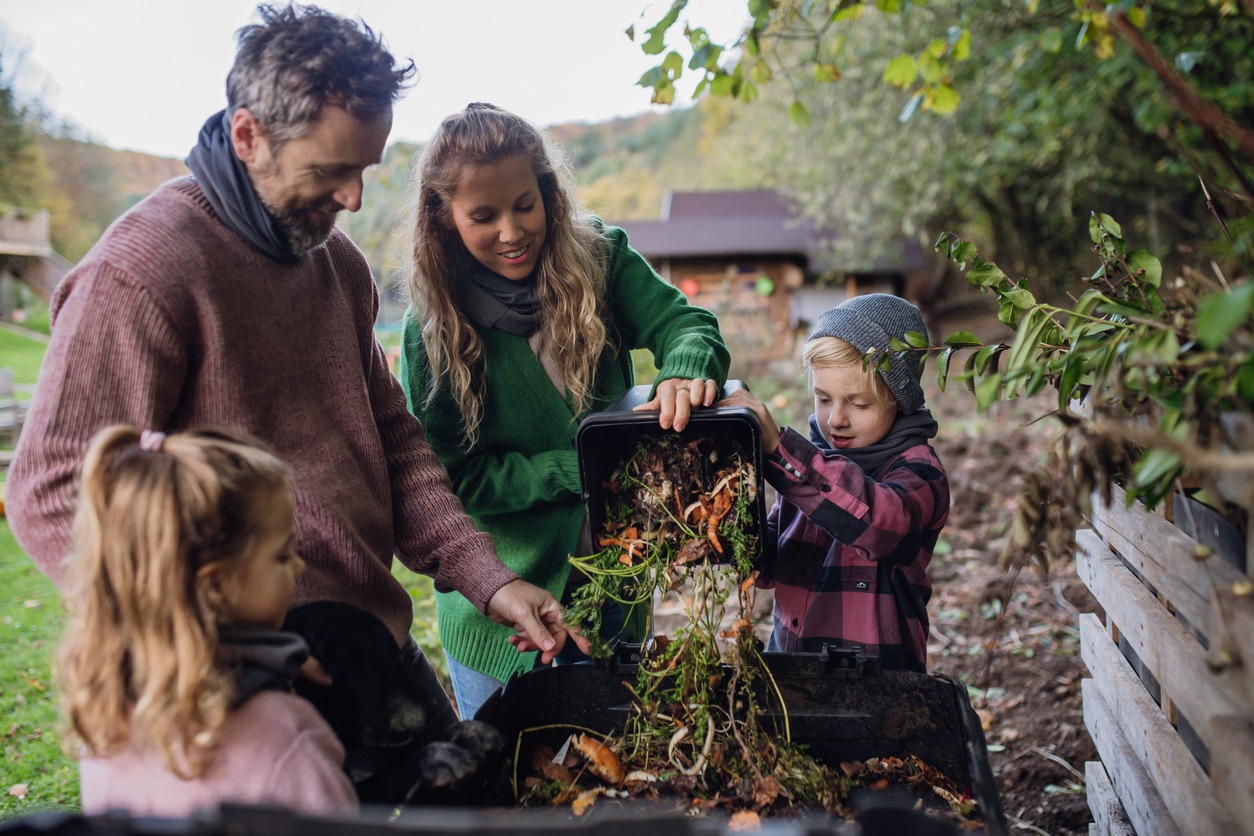Composting is one of those eco-friendly activities we should all be doing, whether you are planning to grow your own food or you simply want to minimize waste from food and other biodegradable or compostable products. The question is, how do you get the whole family involved in composting if they’re unfamiliar with the environmental and health benefits of doing so?
Start with a little education
The first step you’ll want to take is to educate your family on the benefits of composting, such as a reduction in the amount of waste going to landfills, improved soil quality and elimination of the need for toxic or chemical fertilizers.
Then you’ll want them to know what types of food waste and other materials can be added to the kitchen compost bin. Most organic matter, like fruits and vegetables, can go in a compost bin. Coffee grounds and egg shells can go in, too. Paper towels and some cardboard products are compost-friendly. Keep meat, fish, bones, dairy products and oils out of the compost bin.
A yard compost bin can incorporate other materials, like grass or yard clippings, leaves and other carbon-rich materials.
If you’ve got younger kids, you might want to try this…


Simple Way to Teach Your Younger Kids About Composting
Leading by example, hands-on experience and picture books are some of the most effective methods of teaching younger children life lessons. Since we all know kids are extremely observant, they’ll pick up on what you are adding to your compost bin or pile. If you also talk to them about what you’re doing as you do it, they’ll begin to understand what can be added and what can’t. Now, they may not understand all the ins and outs of composting, but you can teach them some of this through hands-on experience.
Then, to give them a more in-depth understanding, we recommend this great, new picture book from Author Brianne Farley titled, “Worm Makes a Sandwich“. What I love about this kids’ book is it’s a fun, yet simple, way to teach kids about how composting helps you grow your own food. It covers why composting is beneficial, the types of food waste and other products you can add to the compost, as well as what happens to the compost.
Since it’s all told from the worm’s perspective and illustrated accordingly, it’s an entertaining way for your young ones to not only learn about composting, but to hopefully want to incorporate this sustainable practice throughout their lifetime. I only wish this was around when my kids were little. I do think my young nephews will love it, though!
Teaching kids about sustainability is extremely important. You want your child to adopt healthy and environmentally-friendly habits from a young age. This way, they’ll have more respect for the planet and be less prone to wasteful activities later in life. Educating them about composting is a great place to start and this book can help.
Setting Up a Compost Bin
Once you’ve educated your family, the next step is to set up a compost bin your family can use. If you want, you can make a DIY indoor compost bin to keep in your kitchen. It should to be large enough to store food scraps and other compostable materials. These are ideal for those who live in apartments or who simply need a place to compost/store materials before moving the composted materials to your garden or yard. If you need a larger bin, like one you can use for garden clippings and leaves, too, give this yard compost bin a try.
From there, you can maintain your compost bin by turning or aerating it regularly. Before you know it, you’ll be using your compost in your garden or yard to the benefits of all your plants, vegetables, herbs and trees.
NOTE: Vermicomposting, aka worm composting, may be another type of composting you want to consider, especially after reading ‘Worm Makes a Sandwich”. Then, you and your kids can make sandwiches with vegetables and other ingredients made with the help of your own worm composters.
The key is to keep it simple
Composting is an easy starting point for those looking to incorporate environmentally-friendly habits into their lives. With a little education and a simple storage solution, anyone can make composting part of their family’s day-to-day routine. The key is to keep it simple and make it fun.
Source link
Tara biofriendlyplanet.com


